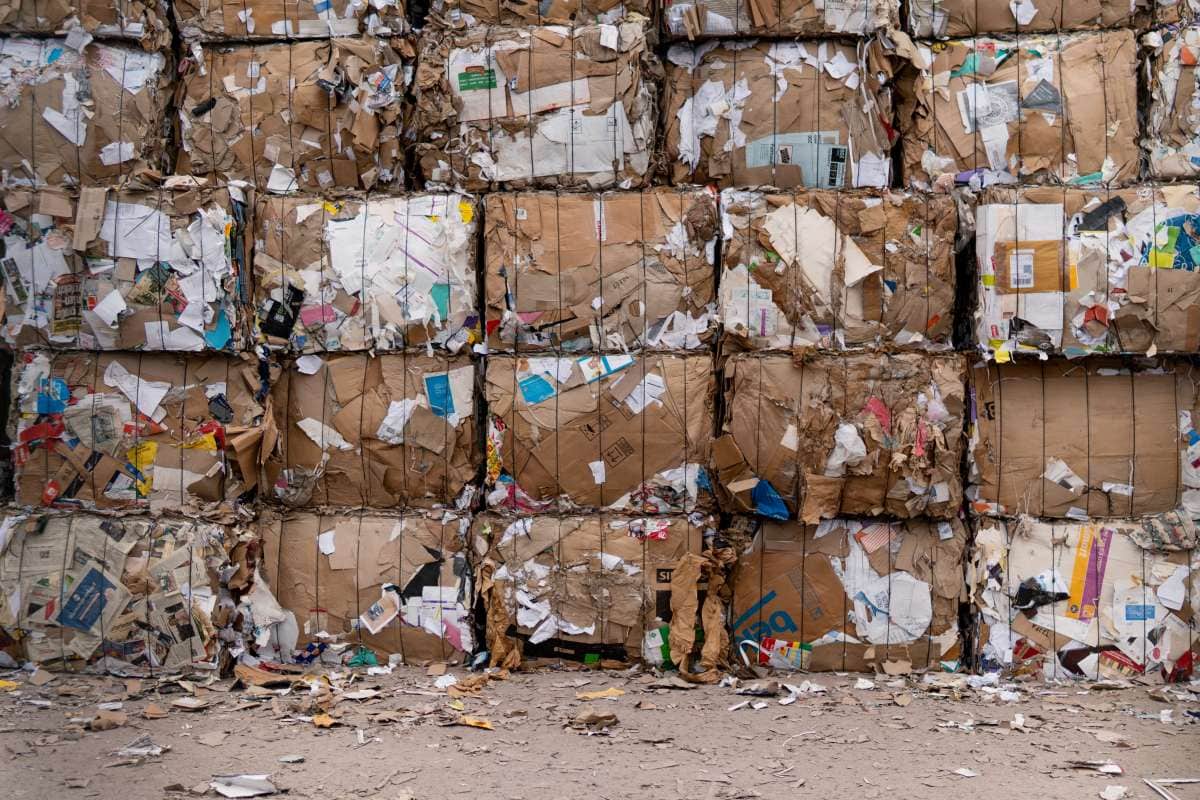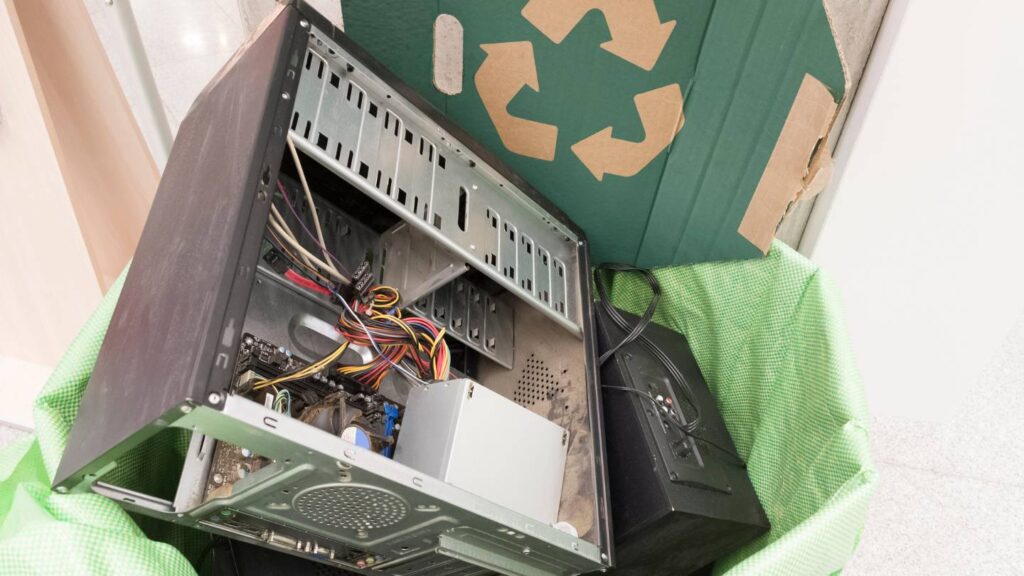As businesses continue to grow and expand, they often generate a significant amount of waste. Waste can come in various forms, such as raw materials, packaging, and energy consumption, among others. Not only does this waste have negative environmental impacts, but it can also lead to increased costs for the business. Fortunately, there are many ways to minimise waste in a business setting. By taking proactive steps to reduce waste, businesses can save money, conserve natural resources, and meet customer demands for environmentally friendly practices.
In this article, we will discuss various strategies that businesses can use to minimise their waste. These strategies include waste prevention, energy conservation, reducing packaging, proper waste disposal, and recycling. By implementing these strategies, businesses can reduce their waste and improve their overall sustainability. We will also discuss the importance of tracking and benchmarking waste management activities. By following these practices, businesses can play a critical role in protecting the environment and reducing their environmental footprint while also improving their bottom line.
Waste Reduction: Why Your Business Should Do It
Business owners find themselves pondering over intriguing statistics related to business waste. The expenses incurred in waste disposal can amount to as much as 4% of a business's turnover, and a substantial 25% of England's waste can be attributed to businesses alone. Such figures signify a significant amount of waste being generated. Here are several compelling reasons for businesses to contemplate the reduction of waste:
- Environmental Impact: A paradigm shift in our collective perspective on waste is essential to safeguard the environment. Landfill waste contributes to climate change by emitting greenhouse gases. Furthermore, the transportation required for waste disposal to landfills leads to increased emissions. By altering behaviours and attitudes towards waste, businesses can actively contribute to environmental preservation.
- Cost Savings: Identifying the most efficient waste disposal service has the potential to save businesses substantial amounts of money. Waste management experts offer invaluable advice on minimising waste and optimising its handling, leading to cost reductions.
- Financial Transformation: Waste management strategies often focus on waste reduction at its source. This approach affects purchasing decisions, resource allocation, and overall business expenditures, resulting in direct financial implications.
- Financial Gains: As global trends favour environmentally conscious business practices, adopting sustainable measures becomes a catalyst for attracting and impressing clients and potential customers. A positive environmental reputation can influence the awarding of contracts, providing a competitive advantage. Additionally, businesses generating excessive waste may identify opportunities for streamlining systems, potentially unlocking avenues for increased profitability.
- Regulatory Compliance: All businesses bear the responsibility of disposing of waste in a responsible manner. Crafting a waste management strategy necessitates adherence to legal obligations imposed on businesses.
Embracing waste reduction measures yields benefits ranging from environmental preservation and cost savings to financial transformations and improved compliance with regulations. Business owners must recognise the importance of waste management and take proactive steps towards minimising their waste footprint.
Benefits Of Addressing Waste

Until recently, organisations had often overlooked the waste they produced. However, a shift is occurring, with many organisations realising the importance of effective waste management. These proactive entities are reaping the benefits of implementing waste reduction programs.
Financial savings are one of the advantages of increasing recycling efforts. By reducing waste disposal, organisations can lower their costs and improve their bottom line. This simple step can have a significant impact on overall profitability.
Furthermore, knowledge plays a crucial role in waste management. By gaining a deep understanding of the quantity and types of waste produced, organisations can identify opportunities to reduce hauling expenses. Armed with this knowledge, they can negotiate waste and recycling services that align with their specific needs, leading to further cost savings.
Streamlining reporting and information sharing is another advantage of establishing a waste management program. Centralising waste management activities within a single platform and adopting a standardised set of metrics enables easier sharing and reporting of information with stakeholders. This improved communication enhances transparency and accountability.
Embracing waste management practices also contributes to sustainability efforts. Efficiently managing waste, water, and energy is vital for achieving sustainability goals. Organisations that prioritise sustainability not only benefit from a positive corporate image but also attract quality tenants to their properties and foster greater employee engagement.
Addressing waste through prevention and recycling presents a significant opportunity for reducing greenhouse gas emissions. By diverting waste from landfills and employing recycling initiatives, organisations can make a substantial impact on their carbon footprint.
Lastly, waste reduction initiatives contribute to resource conservation. Reusing and recycling materials helps conserve valuable natural resources such as trees, metals, and water. By promoting these practices, organisations actively contribute to the preservation of our environment and its finite resources.
Organisations are recognising the importance of waste management and are implementing strategies to reduce waste. By doing so, they enjoy financial savings, gain valuable knowledge, streamline reporting, enhance sustainability efforts, reduce greenhouse gas emissions, and contribute to resource conservation. These benefits underscore the critical role that effective waste management plays in organisational success and environmental stewardship.
Easy Ways To Reduce Corporate Waste
- Recycling and reusing waste materials offer benefits to workplaces across all industries, regardless of the specific waste disposal requirements.
- When viable alternatives exist for items currently used by businesses, making the switch to reusable options is highly recommended.
- Introducing recycling bins in the workplace and ensuring proper usage by employees can divert a significant amount of waste from landfills and promote recycling.
- Implementing colour-coded bins for different types of recyclables helps ensure that items are sorted correctly and sent to appropriate recycling facilities.
- Placing recycling bins for various items next to each office cubicle or workstation facilitates easy and proper disposal by employees.
- Conducting an audit of the workplace enables the evaluation of the supply chain and identifies opportunities to reduce corporate waste.
- Exploring options such as switching to compostable products or replacing machinery that generates excessive material waste can contribute to waste reduction.
- Selling or replacing plastic equipment with more waste-efficient alternatives can be part of the waste reduction efforts.
- Regularly assessing the fill levels of recycling containers allows for potential adjustments in pick-up frequency, potentially reducing associated costs.
- Evaluating packaging is crucial, considering that one-third of waste in developed countries is solely attributed to packaging.
- Eliminating single-use containers or opting for recyclable packaging materials can significantly reduce waste and lead to cost savings.
- Going paperless by adopting digital cloud-based solutions for data and communications not only reduces paper waste but also enhances efficiency and accessibility of information.
- Transitioning from bottled water to filtered tap water in the workplace helps combat plastic waste, a major environmental concern.
- Ensuring employee understanding and engagement is vital for successful waste reduction initiatives.
- Conducting a recycling awareness day can educate employees about the environmental impact of waste and encourage their active participation.
- Clear communication and alignment among employees are essential for effective implementation of waste reduction measures.
- When workers comprehend the environmental consequences of waste generation, they are more likely to support recycling programs and other sustainability initiatives.
Develop a Waste Reduction Strategy

Reducing waste benefits the environment and offers substantial cost-saving opportunities for businesses. By implementing a comprehensive waste minimisation program, organisations can identify areas for waste reduction and make strategic choices that lead to optimal results. This article presents a step-by-step guide to conducting a waste management audit, creating a waste management action plan, and turning waste management ideas into actionable initiatives.
Conducting a Waste Management Audit
Assessing Current Waste
In this phase, businesses should conduct a thorough examination of their premises to determine the quantity and direct costs associated with visible waste. If exact figures are challenging to ascertain, approximate estimates can provide a general understanding of the waste situation. Major waste sources such as packaging waste, waste lubricants, and wastewater should be identified.
Analysing Business Processes:
Businesses should explore their processes and activities in a more structured manner. This can be accomplished by engaging with employees and reviewing relevant business documentation. Areas of focus may include redundant invoice and reminder processes, excessive packaging and paperwork requirements, and potential raw material wastage due to product design inefficiencies. It's crucial to consider all costs related to waste, including decreased production efficiency and additional waste disposal expenses.
Creating a Waste Management Action Plan
Prioritising Waste Reduction Measures:
A waste management action plan outlines the key priorities for addressing waste within a business. Initially, it is advisable to concentrate on cost-effective and easily implementable waste reduction measures. Even service-based businesses can explore recycling options, such as increasing paper recycling efforts. The waste audit data collected earlier will be instrumental in identifying areas with significant waste quantities and high net costs, such as waste disposal, energy consumption, packaging waste, and raw material wastage.
Engaging Employees and Identifying Opportunities:
Effective waste reduction strategies involve involving employees and seeking their input. By consulting staff engaged in activities that generate waste, valuable insights and suggestions for waste reduction can be obtained. Employees may propose solutions such as equipment repairs or replacements, changes in work practices, or highlight inefficient processes due to inadequate training. Raising awareness and providing training initiatives can further enhance the outcomes of waste reduction efforts.
Turning Waste Management Ideas Into Action
Generating Innovative Solutions:
To prevent waste generation, businesses should encourage brainstorming sessions to generate ideas. Calculating potential savings associated with each idea will help prioritise initiatives. These potential savings should be weighed against the costs and timelines required to implement the necessary changes.
Defining Key Actions and Deadlines:
Once key waste reduction ideas have been selected, it is essential to outline the specific actions and establish deadlines for their implementation. Assigning a senior staff member or someone with management access as the coordinator of the waste reduction program ensures the necessary authority and accountability for driving the initiative forward.
By adopting a strategic approach to waste reduction, businesses can unlock significant financial benefits while making a positive impact on the environment. Conducting a waste management audit, creating an action plan, and transforming ideas into actionable initiatives form a structured framework that empowers businesses to achieve waste reduction goals effectively. By embracing waste minimisation, organisations demonstrate their commitment to sustainability and responsible business practices.
FAQs About Rubbish Removal
Turning off or unplugging lights during the day can save energy and help your lights last longer. Keeping rechargeable batteries for your flashlights can prevent waste. If you must use disposable batteries, consider buying ones with low mercury content to reduce hazardous waste.
ZBB is a key strategy to cut wasteful expenditures. It provides cost visibility and drives cost accountability across your business. With ZBB, you start from zero and justify every expense as if it were a new expense. By doing so, you can identify wasteful spending and allocate resources to high-priority areas.
Analysing your business procedures and pinpointing problem areas where waste products could be decreased is a good place to start. Adopting the "Reduce, Reuse, and Recycle" philosophy is another effective strategy. Waste minimisation refers to the use of source reduction and/or environmentally sound recycling methods prior to energy, recovery, treatment, or disposal of wastes. It does not include waste treatment, meaning any process designed to change the physical.
Using existing waste to create something new, solving a secondary business problem, or sourcing specific food waste to improve an existing product are all examples of ways to create a food waste business model that can help reduce waste in your business. Considering how your business model could be improved by using the waste that your employees create every day can also help you branch out and be more efficient.
Minimising waste can save your business money, improve your brand reputation, and reduce your environmental impact. By consuming and throwing away less, you will reduce the need to handle, treat, and dispose of waste, which can lead to cost savings.
Conclusion
A company's trash has the potential to have a negative effect on the environment and the bottom line. garbage prevention, energy conservation, packaging reduction, proper garbage disposal, and recycling are all measures that businesses may do to lessen their environmental impact and lower their waste output. Businesses may safeguard the environment, lessen their environmental impact, and boost their bottom line by keeping track of and benchmarking their waste management efforts. Reducing a company's waste output can have positive effects on the environment, the bottom line, and the company's reputation. Reducing trash at its origin is a common goal of waste management techniques, with important practical implications.
Sustainable practises not only help businesses comply with legislation, but also win over customers and impress regulators. It is imperative that businesses take preventative measures to reduce their waste output. The benefits of applying techniques to minimise waste are becoming apparent, and as a result, more and more businesses are recognising the need of proper waste management. Taking steps to decrease waste can result in monetary gains, insights, simplified reporting, sustainability initiatives, reduced glasshouse gas emissions, and resource conservation. Businesses can increase their profits and decrease their expenses by taking steps to reduce their waste output.
By analysing trash generation data, businesses may bargain for waste and recycling services tailored to their unique requirements. Organisations help preserve our planet and its limited resources by advocating for trash reduction programmes. All types of businesses can benefit from recycling and repurposing waste materials. Introducing recycling bins and encouraging their proper use can keep a lot of trash out of landfills. An audit of the workplace can help find ways to cut down on unnecessary spending.
Keeping tabs on how full your recycling bins are can help you save money. Reducing waste and saving money is possible through the use of reusable or recyclable containers and packaging. Having a recycling awareness day can help raise consciousness about the negative effects of trash on the environment and inspire workers to take action.
This article provides a detailed breakdown of the processes involved in conducting a waste management audit, developing an action plan for waste management, and putting waste management concepts into practice. The audit should evaluate existing waste, examine business processes, prioritise waste reduction measures, involve employees, generate creative solutions, outline critical next steps and deadlines, and designate a senior staff member or someone with access to management as the program's coordinator.
Businesses can reap substantial financial benefits and make a beneficial impact on the environment by taking a systematic approach to waste reduction. Organisations may prove they care about the environment and conduct ethical business by adopting trash reduction strategies.
Content Summary
- Businesses generate a significant amount of waste, including raw materials, packaging, and energy consumption.
- Minimising waste can save money, conserve natural resources, and meet customer demands for environmentally friendly practices.
- Strategies for waste reduction include waste prevention, energy conservation, reducing packaging, proper waste disposal, and recycling.
- Implementing these strategies improves overall sustainability and helps businesses play a critical role in protecting the environment.
- Waste disposal costs can reach up to 4% of a business's turnover.
- 25% of England's waste is generated by businesses.
- Landfill waste contributes to climate change through greenhouse gas emissions.
- Changing behaviours and attitudes towards waste helps preserve the environment.
- Efficient waste disposal services can save businesses substantial amounts of money.
- Waste management strategies impact purchasing decisions and overall business expenditures.
- Embracing sustainable practices attracts clients and potential customers, providing a competitive edge.
- A positive environmental reputation influences contract awards and boosts profitability.
- Waste management is a legal obligation for all businesses.
- Addressing waste leads to financial savings and improved profitability.
- Increased recycling efforts reduce waste disposal costs and improve the bottom line.
- Understanding the quantity and types of waste produced helps identify cost-saving opportunities.
- Centralising waste management activities enhances transparency and accountability.
- Effective waste management contributes to sustainability efforts and attracts quality tenants.
- Waste reduction initiatives help reduce greenhouse gas emissions and carbon footprint.
- Reusing and recycling materials conserves valuable natural resources.
- Waste management benefits include financial savings, knowledge acquisition, and sustainability enhancement.
- Recycling and reusing waste materials are beneficial across all industries.
- Introducing recycling bins and colour-coded systems promotes proper waste disposal.
- Auditing the workplace identifies opportunities for waste reduction.
- Exploring alternatives and eliminating single-use items reduce waste and save costs.
- Going paperless with digital solutions enhances efficiency and accessibility.
- Employee engagement is vital for successful waste reduction initiatives.
- A comprehensive waste minimisation program helps identify areas for waste reduction.
- Conducting a waste management audit assesses current waste and analyses business processes.
- Creating a waste management action plan involves prioritising measures, engaging employees, and turning ideas into actionable initiatives.




